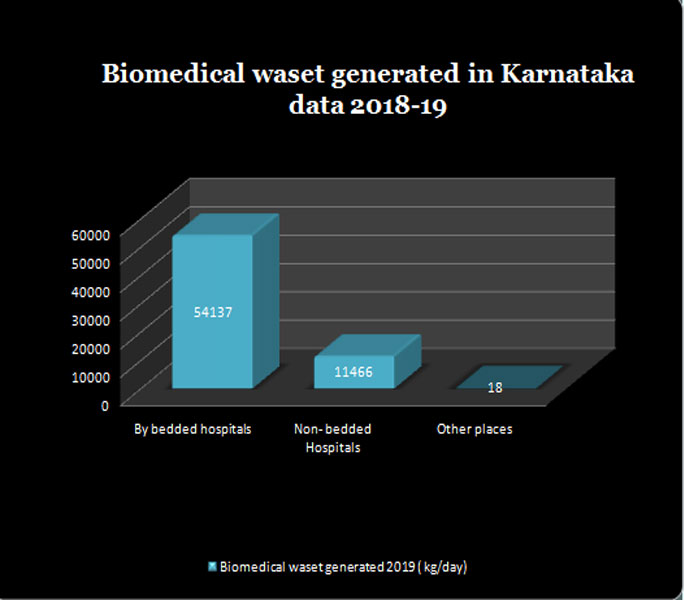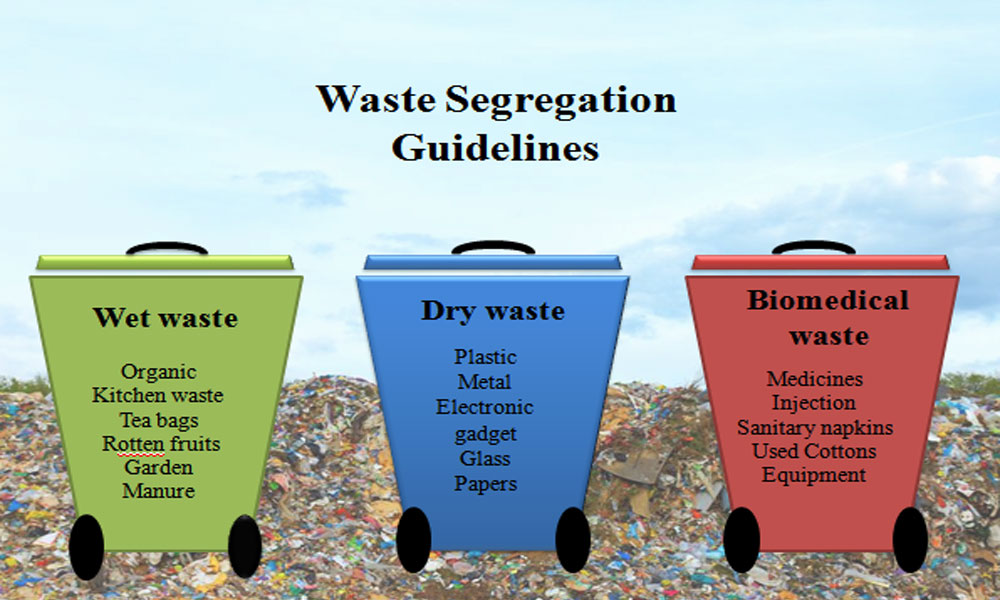Bangalore to soon make biomedical waste segregation at homes a compulsory practice, says Bruhat Bengaluru Mahanagara Palike (BBMP) Solid waste management department to assist biomed waste treatment plants in the city.
By Neetu Saini
Stepping up to crack down locals who dispose the domestic biomedical waste with the wet and dry wastes, the BBMP Solid waste management committee has come up with a tender that will make medical waste segregation at house-level compulsory.
With the lack of dumping sites and non-availability of BBMP biomedical waste collectors in the city people continue to throw biomed waste in the dustbin. But soon this habit is going to be a thing of past says, Dr Sandhaya, a medical officer at BBMP. She added domestic medical waste collection mechanism will be set up in the city to collect segregated waste from houses within two months.
In the process to revive waste management policies, the BBMP solid waste management is stretching its arms to catch up with the newly amended Biomedical Waste Management Rule 2019. This will resolve the pharmacists’ dilemma as what to tell the customers who come to return expired medicines.
“We don’t accept the expired medicines from the customers as it’s not our responsibility to dispose them once the drugs are sold. The expired medicines are either flushed out or have to be sent to the manufacturing company within three months from the date of expiry. We don’t get any compensation for those medicines” said Harshit, a pharmacist in Vijayanagar.
“At my home we throw the expired medicines and syringes in the dustbin asthere’s no other way to dispose it. We can’t go to the hospital just to dispose them and there’s no separate dustbin designated for the same,” said Karuna L, a resident of Hosahalli.
Report by the Comptroller and Auditor General of India (CAG) showed that Karnataka is still struggling to follow Biomedical Waste Management Rules, 2016 which mandates the authorisation of hospitals and clinics by the centre and also uploading of biomed waste generated by them per day on their official website.
Amid criticism by waste collectors and environmentalists for poor cooperation by Solid waste management (SWM) in the city, BBMP biomed waste management officers say people discarding chemicals have become the most challenging issue.
Currently, the BBMP biomed waste management department has tied up with three major biomedical waste management (BMW) treatment plants namely, Maridi, Anu Autoclave services and Sembranky Environment Management Ltd. These treatment services collect the Biomed waste from public clinic and health care facilities around the city. To expand the horizon, BBMP with Karnataka Pollution Control Board (KPCB) is planning to merge with more BMW treatment facilities.

Biomedical waste like syringes, blood soaked cottons, expired medicines, glucose bottles and other medical equipments if not disposed properly could prove hazardous to the environment and can also cause harmful diseases like HIV, skin infection, typhoid, cholera.
Tender regarding dumping of garbage determines the segregation of household waste into three categories: Dry waste, wet waste and sanitary waste. The sanitary waste will include all the domestic bio-med waste like medicines, empty chemical bottles, diapers and used sanitary napkins. Actions are taken to reinforce the 2017 BBMP guidelines regarding the waste segregation.

“Meetings have been conducted regularly to formulate a solution and a tender is being set which also includes the staff and occupiers training, and ward wise waste collection,” said Dr Sudarshan, Assistance BBMP Headquater Clinical Health Officer.
Annual Report 2018-19 released by the Karnataka Pollution Control Board (KPCB) affirms that in Karnataka there are 26 common Biomedical Waste Treatment Facilities(BMWTF) in operation out of which 24 BMWTF have installed online emission monitoring system and four BMWTFs are under construction.
“Whoever violates the rule will have to pay a considerable penalty. And if any clinic or hospital found operating without an authorised, No objection certificate from KPCB and BBMP biomed waste management will be fined and in severe cases the license could be cancelled,” said Dr Hegde, Health Officer Bangalore South Zone.
A senior officer at Karnataka Pollution Control Board (KPCB) said, “We are not responsible for the maintenance of biomed waste. Proper monitoring of Biomed waste at district level is necessary which comes under the district level Pollution control board. This issue is not because of the lack of policies, but due to the negligence and non compliance by the people at the ground level.”
“Sanitary waste needs to be operated separately from the wet waste as the biomedical waste is poisonous in nature and contains certain harmful chemicals that need to be scientifically treated. There are hardly any public awareness programs by Solid waste management department. Nowadays everyone is health conscious, once the public comes to know about the impacts of untreated biomedical waste, chances are, they will segregate waste separately,” Dr Sonam Sanjay, a Radiologist.




